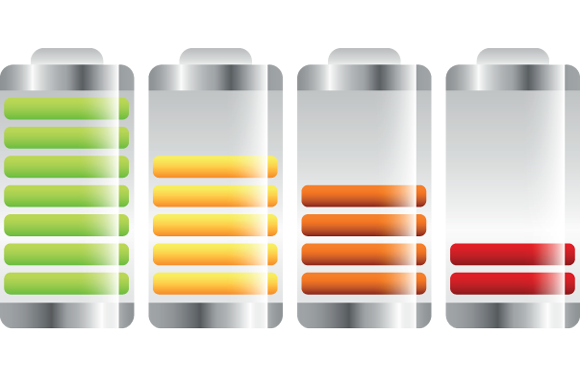You may be aware of revised regulation surrounding the transportation of rechargeable Lithium ion (li-ion) batteries by air. In this post we provide you with the background to these changes and our proposed actions.
 The International Civil Aviation Organization (ICAO) Dangerous Goods Panel (DGP) agreed to sweeping changes to the Lithium ion and Lithium metal battery packing Instructions in the ICAO Technical Instructions for the Safe Transport of Dangerous Goods by Air during its October 19 – 30 meeting in Montreal. The most significant of these is a 30% state of charge (SoC) limit on Lithium ion cells and batteries shipped by air in accordance with Packing Instruction 965 of the ICAO Technical Instructions. Cells and batteries may exceed a 30% SoC if approved by the competent authority in the country of origin and the operator (airline). The DGP’s SoC limit does not apply to lithium ion cells or batteries packed with or contained in products such as cell phones, power tools, tablets, medical devices, electric vehicles and military equipment.
The International Civil Aviation Organization (ICAO) Dangerous Goods Panel (DGP) agreed to sweeping changes to the Lithium ion and Lithium metal battery packing Instructions in the ICAO Technical Instructions for the Safe Transport of Dangerous Goods by Air during its October 19 – 30 meeting in Montreal. The most significant of these is a 30% state of charge (SoC) limit on Lithium ion cells and batteries shipped by air in accordance with Packing Instruction 965 of the ICAO Technical Instructions. Cells and batteries may exceed a 30% SoC if approved by the competent authority in the country of origin and the operator (airline). The DGP’s SoC limit does not apply to lithium ion cells or batteries packed with or contained in products such as cell phones, power tools, tablets, medical devices, electric vehicles and military equipment.
Accutronics OEM customers will not need to be concerned with state of charge prior to shipping batteries to their customers as we have decided to modify our internal processes so that all Lithium ion batteries leaving our facility will be shipped at or below 30% SoC prior to the 1st April deadline. In many cases this will mean changes to the published technical specifications that exist between our company and customers.
The International Air Transport Association (IATA) has released a summary of these changes, which can be downloaded here. In addition, we have prepared a short FAQ that may assist you:
Q1: What about battery stock I am holding? Do these batteries need to be shipped at ≤30% SoC if I want to ship by air?
A1: If you have stocks of Lithium ion batteries which are at >30% SoC then these will need to be discharged to ≤30% SoC if you want to ship them by air after 1st April 2016.
Q2: What is the SoC for batteries Accutronics currently ships to me?
A2: This will be shown in the technical specification that we have supplied to you, normally in the storage section.
Q3: Will the reduced SoC mean a shorter shelf-life for the battery?
A3: We will address predicted storage times on a case by case basis as each battery storage time depends on the cell capacity, the quiescent load from battery electronics and the storage temperature.
Q4: Why does Accutronics not start shipping at ≤30% SoC immediately?
A4: We have a number of equipment and process changes to make to allow ≤30% SoC shipping. We are working to complete these as soon as possible but with such a large number of OEM battery designs we cannot make the changes immediately. Customers will be informed when their first shipment is dispatched at ≤30% SOC.
Q5: What if I never ship by air or want to manage the state of charge myself? Can Accutronics still ship by road or sea at a higher state of charge?
A5: We can ship at the higher SoC but ask that customers request this formally in writing for consideration. We do not recommend shipping at >30% SoC due to the possibility of someone in the supply chain (OEM/Distributor/Customer) shipping the battery by air at the wrong SoC.
Q6: I charge the batteries at my facility before I send them (by air) with my equipment. Do they need to be at ≤30% SoC?
A6: No, the ≤30% SoC only applies to Lithium Ion batteries shipped alone by air. It does not apply to batteries packed with or contained in equipment.
Q7: The statement at the top of this page states that “cells and batteries may exceed a 30% SoC if approved by the competent authority in the country of origin and the operator (airline)”- why not just get this approval?
A7: This approval is complex and costly to obtain and needs to be obtained for each shipment. It is not a practical solution for regular shipments and does not solve the issue of an OEM needing to ship to a customer further down the supply chain.
Q8: As an OEM, how do I know the state of charge of my battery before I ship it?
A8: If your battery is a smart battery then it contains a fuel gauge that allows you to read the remaining capacity as a percentage. This can be used to determine if the SoC is ≤30%. If the battery is not smart then SoC prediction is more difficult. Please contact us for assistance.
Q9: Will Accutronics provide some sort of evidence that batteries are shipped ≤30% SoC?
A9: Yes, we will provide customers with a written declaration in due course.
If you have any questions please do not hesitate to contact us; we will either answer you directly or refer your question to our technical staff who are tasked with implementing this process change across our business.


